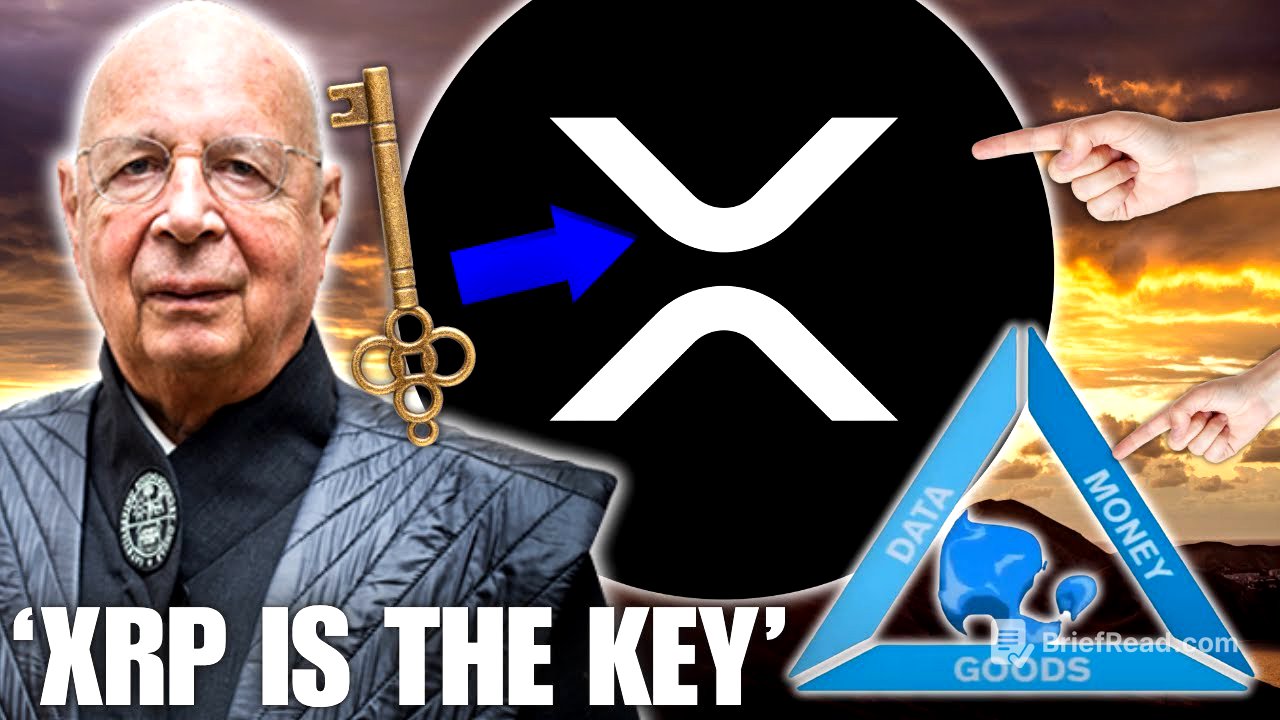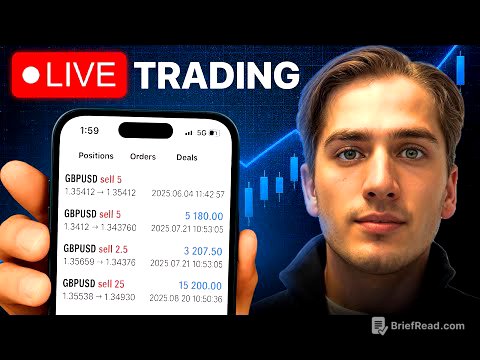TLDR;
This video discusses why XRP is poised for success, focusing on its potential to complete globalisation by addressing the missing component of a globalised monetary system. It highlights insights from Chris Larsen, one of Ripple's founders, on how XRP can modernise financial systems and enable a more interconnected world.
- XRP and similar DLTs can serve as the foundation for a new global digital financial system.
- Globalisation lacks interoperability in money, which XRP aims to solve.
- XRP can bring the financial system into the internet age, facilitating a more globalised world.
Introduction: XRP and the Future of Global Finance [0:00]
The speaker expresses strong confidence in XRP's potential, viewing it and other Distributed Ledger Technologies (DLTs) like XLM as the future infrastructure for a new global digital financial system. The discussion centres on globalisation and the current absence of a globalised monetary system. Protocols like XRP are expected to address this gap. While "globalism" can have negative connotations, the speaker focuses on its potential benefits, such as facilitating global travel and communication, while noting that the financial system has lagged behind in adopting modern technology.
Chris Larsen on Completing Globalisation [2:41]
Chris Larsen discusses how the internet of value represents the final step in globalisation. He notes that while the world is interconnected and interdependent, it is also divided, leading to disillusionment with globalisation. Larsen argues that globalisation is incomplete, missing interoperability between data, goods, and money. While goods and data are fully interoperable, money is not, hindering the full potential of globalisation. This lack of financial interoperability disproportionately affects developing markets, where people can see opportunities but cannot act on them due to financial barriers.
The Missing Ingredient: Interoperability of Money [6:07]
Chris Larsen explains the historical context of globalisation, comparing the evolution of shipping with the current state of financial systems. Before the shipping container, global trade was inefficient and labour-intensive. The introduction of the shipping container led to a 700% increase in global trade within 20 years by making goods fully interoperable. Similarly, the internet revolutionised data communication. However, money remains a missing ingredient, with the world spending $2 trillion annually to move value across borders, facing blocked access for billions and high failure rates. This inefficiency hinders globalisation, and XRP aims to address this by modernising financial systems and bringing them into the internet age.
Conclusion: XRP's Role in a Globalised Future [9:08]
The speaker concludes by reiterating that XRP and similar cryptocurrencies are likely to succeed because they solve a real-world problem in finance. By solving this problem, they bring the world closer to a globalised system and into the internet age for money and value. The speaker references Chris Larsen's insights and foresight, highlighting the potential of this technology to enable a new world.









